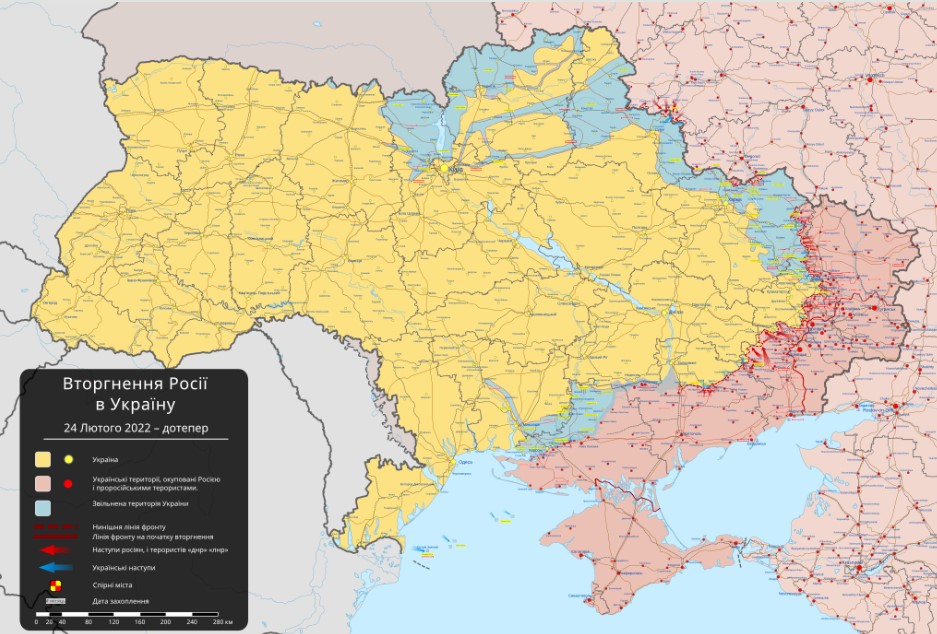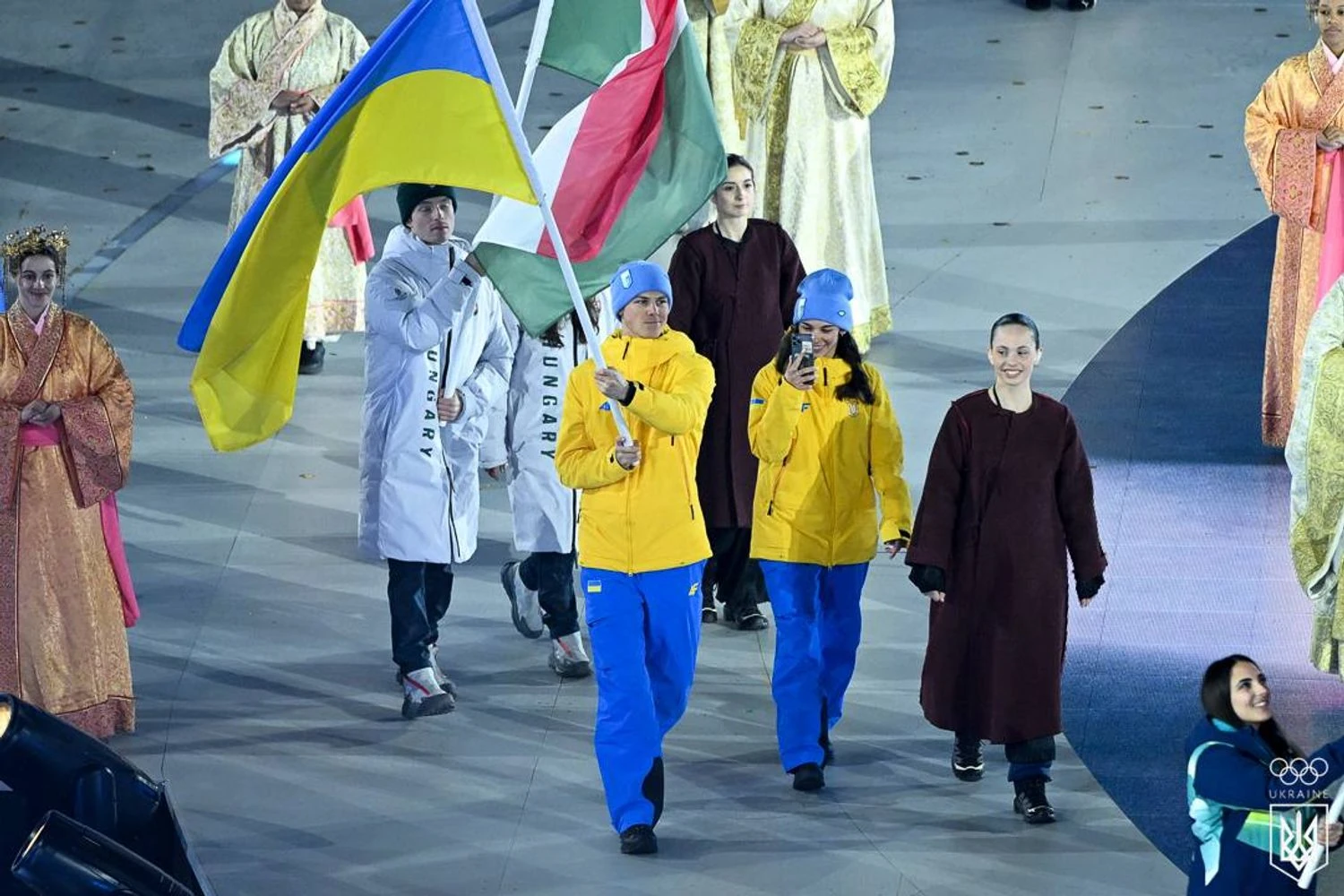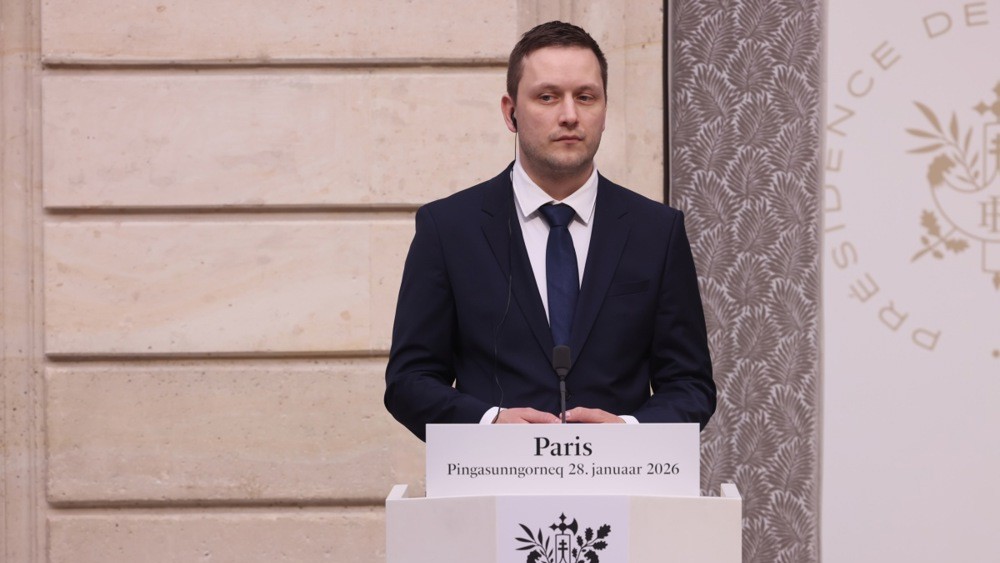Today, the question of whether the end of Russia's war against Ukraine can be achieved through a "peace for territory" scenario seriously concerns world capitals. There is no answer, but it seems that it is actively being sought, although it is not a fact that they will find it. For Ukraine, the answer is obvious, and that answer is no. Such "peace" is neither achievable nor advisable.
Can territorial concessions serve as a basis for lasting peace?
As practice shows, no, they cannot. No one has ever managed to build lasting peace on the basis of territorial concessions. Land is generally poorly shared, and when it comes to giving land in exchange for peace, it always turns out to be something other than what was desired. And the issue is not only about inevitable things like resentment and revenge. There are even more serious issues that stem from the very nature of armed conflicts: demanding land in exchange for peace is roughly the same as trying to extinguish a fire with gasoline. The result is always the same.
One can recall Chamberlain, his words "I bring you peace," and his role in the "Sudetenland issue" – ultimately, it was the concession of Czechoslovakia's Sudetenland to Germany that became the prologue to World War II.
"Peace for land" may work in a historically limited perspective, but it never solves the problem – on the contrary, it creates an even bigger problem that still needs to be resolved somehow, often at the expense of future generations. The division of Korea ended the war on the Korean Peninsula but created a huge, excuse me, headache in the form of North Korea. The UN resolution of 1947 on the partition of Palestine between Arabs and Jews also created more problems than it solved. There are many examples.
The redrawing of borders after World War II also laid the foundations for serious geopolitical tension, but it was inscribed in the global security architecture that formed during the Cold War, so this tension did not immediately cause geopolitical earthquakes – because it was long contained and compensated. Now, as we see, everything has changed.
Territorial integrity and the Helsinki Act of 1975
Understanding the severe consequences and the general unacceptability of imposing territorial concessions came at a high price for humanity. That is why the Helsinki Conference of 1975, particularly its concluding document, enshrined the principle of territorial integrity, which today is one of the key principles of international relations. This document, known as the Helsinki Act, recognized the inviolability of borders established after World War II and obliged states to respect each other's territorial integrity.
The Helsinki Act enshrines the following:
- Respect for sovereign equality, rights stemming from sovereignty: each state has the right to self-determination and free choice of political, social, economic, and cultural development.
- Non-interference in internal affairs: states have no right to interfere in the internal affairs of other states.
- Respect for territorial integrity: states commit to respecting each other's territorial integrity and not recognizing any changes in borders made by force.
- Inviolability of borders: borders must remain inviolable.
It is obvious that the Muscovites still do not understand such things. They are still in the paradigm of "Kiemskaya volost" – in the words of the classic M. Bulgakov, also a Muscovite who understood them well: "They fought – now give it back." There is no doubt that they insist and will continue to insist on significant territorial concessions from Ukraine. The Helsinki Act is "not a decree" for them. They live by the principle "if it can't be done, but I really want it, then it can be done."
The Tenth Commandment
The Tenth Commandment reads: "You shall not covet your neighbor's house; you shall not covet your neighbor's wife, or his male or female servant, his ox or donkey, or anything that belongs to your neighbor!" – Book of Exodus, Chapter 20.
People who consider themselves Christians should treat the Ten Commandments with more respect. But this is also not about the Muscovites. Along with the Decalogue, they ignore any norms of international law, signed agreements and treaties, laws, and customs of war; they commit serious war crimes daily and continue to demand concessions. This is the behavior of a bandit, a murderer, a criminal, a terrorist, unburdened and unrestrained by any moral, ethical, or legal considerations – just as by the promises previously made.
Will they adhere to any promises they might make to get what they want? The answer is obvious.
What is the way out?
Let the reader forgive me this play on words, but the way out is indicated in the Book of "Exodus." Chapter 20. Where it says "you shall not covet your neighbor's house..." and continues in the text.
The logic of negotiations works between high parties that agree. But in this war, there are no "parties." There is a country that is defending itself, and there is a criminal and terrorist organization that pretends to be a state, which by definition cannot be contractually capable. For such serious cases, there is only coercion, which has already been discussed, but it still seems to be lacking.
Ukraine cannot agree to negotiations on "territorial concessions," including for global considerations. Such concessions will trigger a chain reaction worldwide – as it turns out that the principles enshrined in the Helsinki Act no longer apply, and anyone can now desire anything and try to take it by force. There will be a new series of local conflicts, a sea of blood, a new arms race, and geopolitical chaos for several generations. This cannot be allowed – and here too is our responsibility to the world.
It is also important to understand that the Muscovites will not be satisfied with the concessions they expect to receive, as they have never been satisfied. The logic of a bandit and a murderer will push Russia to new crimes – as it always happens when a criminal is not punished, and here they are even encouraged – as the issue of punishing criminals and compensating for the damage caused is not even mentioned in this "negotiation" discourse.
And that is a pity. Ukraine will not be able to "buy peace" with the Muscovites. They are not the kind of people with whom one can negotiate anything. They will still have in mind and aim for the destruction of Ukraine as an independent state and Ukrainians as a political nation.
As long as we exist as an independent state and political nation, we must demand respect for our rights in the spirit of the Helsinki Act and the Tenth Commandment. This is the only way out we have.



